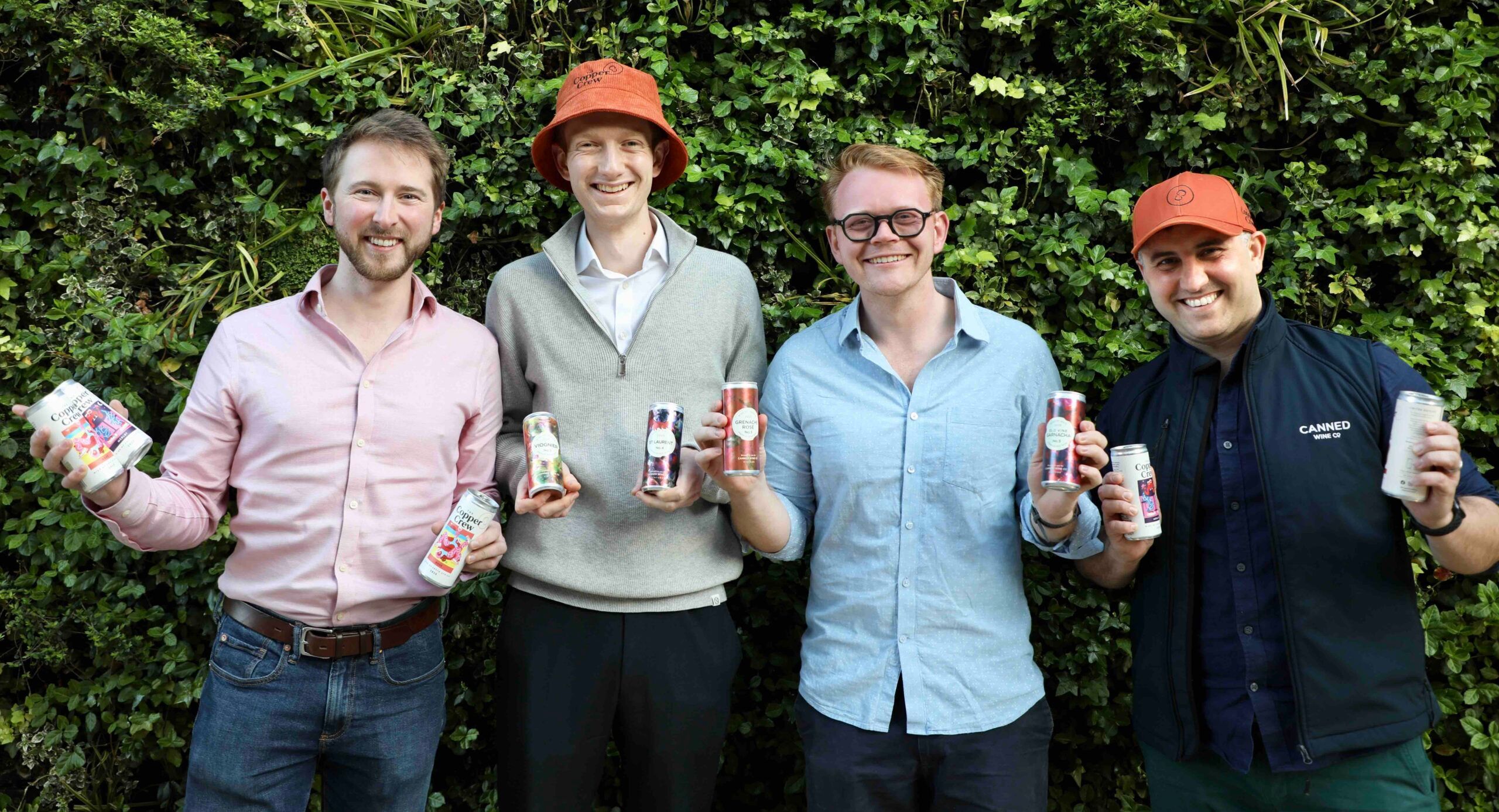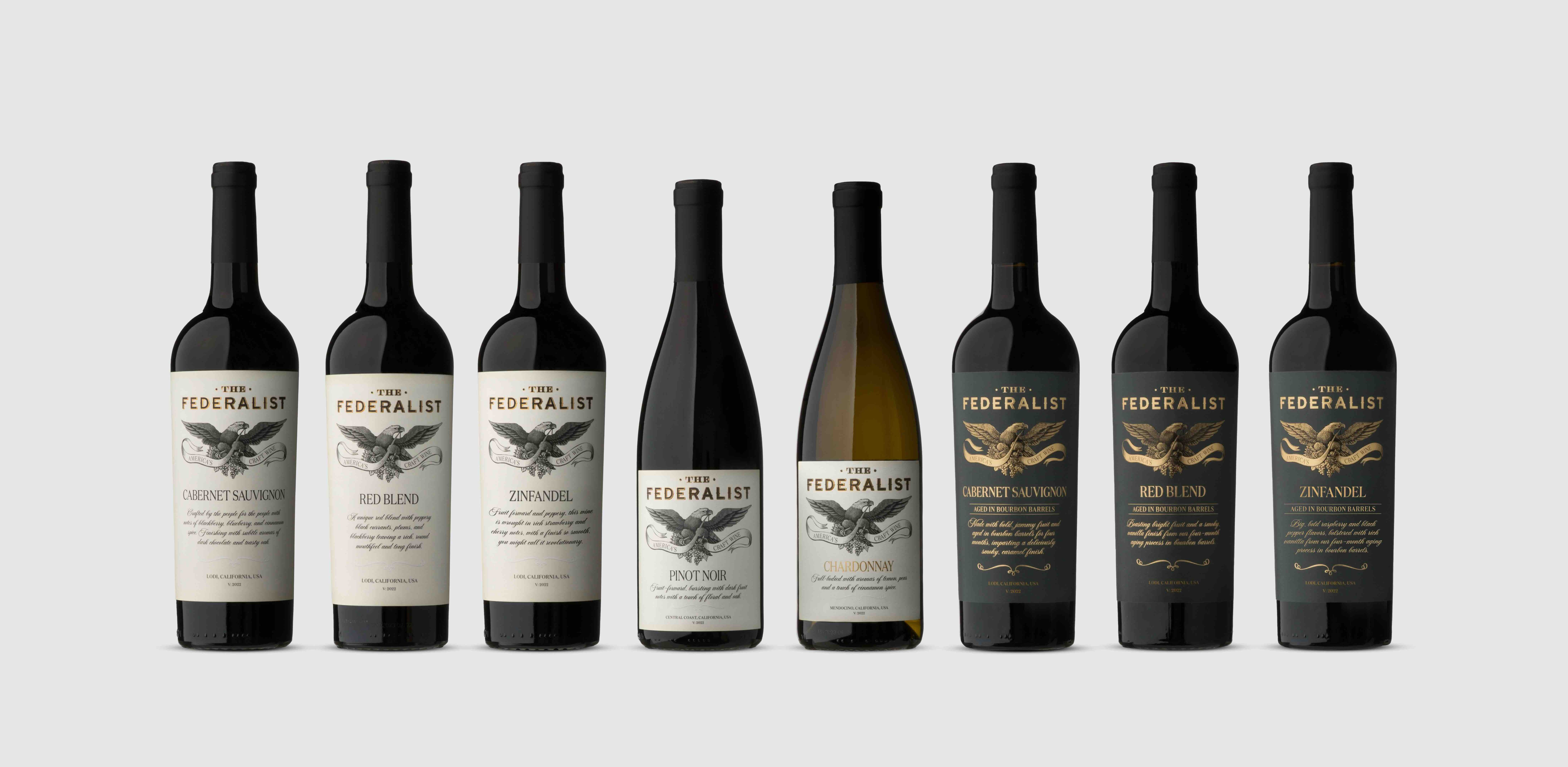What does it take to run a successful canned wine brand. Ben Franks and the Canned Wine Co believe they have the answer.
Tell us about your backgrounds and how you got into the wine industry?
During my university studies in Bath I had a part-time job at Waitrose on the wine department. I was an aspiring journalist and I had managed to convince my manager to let me take home a new bottle of wine each week to review it for the internal partner’s magazine and my own online magazine I ran at the time.
Before graduating from university, I was commissioned to go and interview Sam Lindo, the winemaker at Camel Valley in Cornwall.I trekked across Cornish fields suited and booted, showed up to his winery door with mud up my suit trousers and confessed I didn’t know much about wine. Instead of turning me away, Sam generously spent three hours with me sipping through the range of Camel Valley on the balcony overlooking the vines (it was a cold January but the view was still beautiful), talking about English wines, and then he showed me around the winery to explain how wine was made.
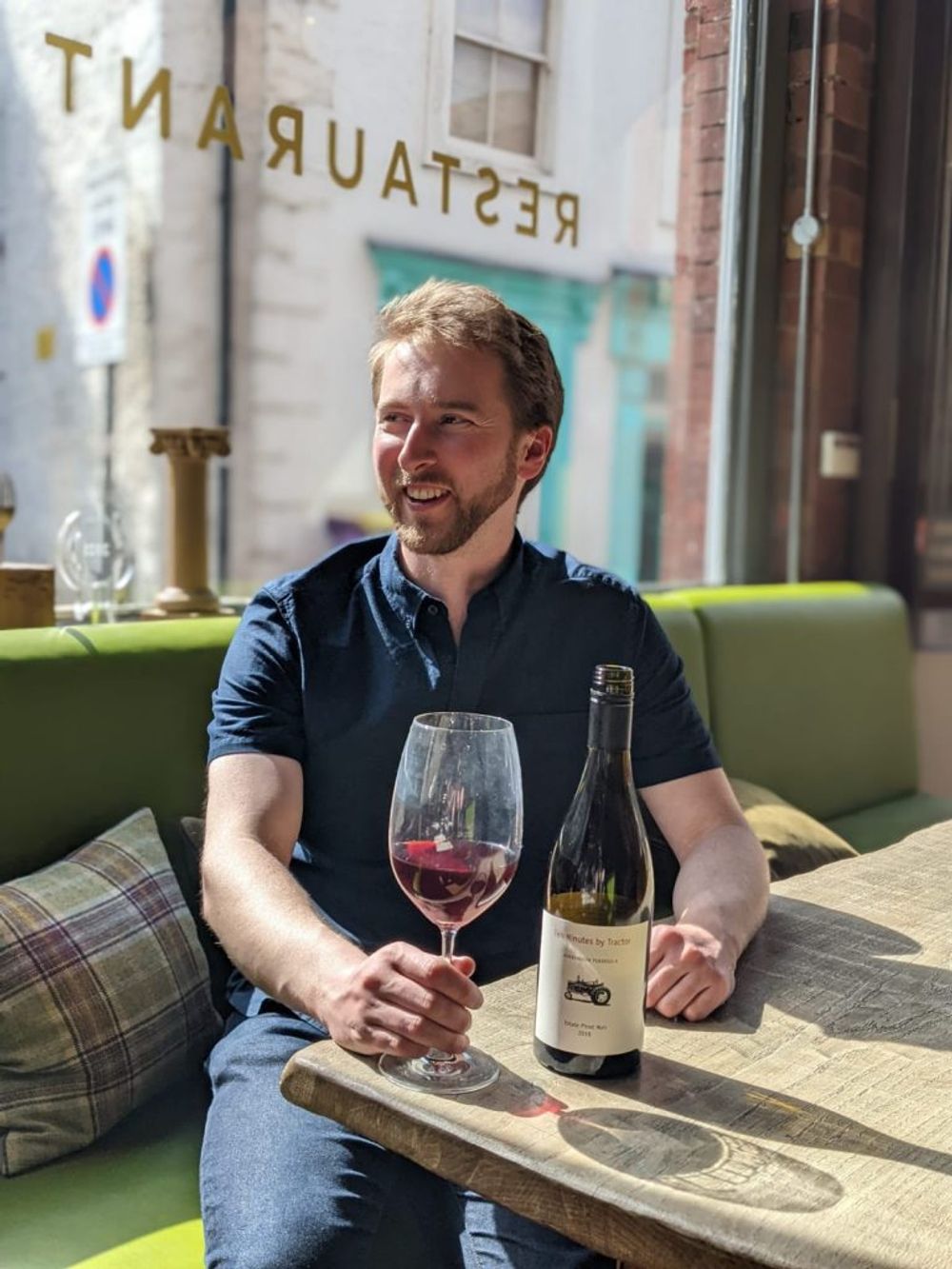
As well as the Canned Wine Co Ben Franks also runs Novel Wines – a specialist wine importer of Central and East European wines
I left with the wine bug. On returning to Bath, I took the WSET Level 2 before I graduated, and when I left university I set up a consultancy designing wine menus, training staff and running tastings – primarily for hen dos.
Shortly after I launched Novel Wines at the age of 22, a specialist wine retailer for Central and Eastern European wines, which has now gone on to win four consecutive Decanter Retailer Awards, an IWC Merchant award, and we’ve been shortlisted for the Harper’s 50 Best Indies twice. I’ve also since achieved my WSET Diploma and have my eyes on the MW next.
Why did you want to get into canned wine?
For me, drinking less but trading up to better quality has been a cultural shift since I got into wine seven years ago. I love curiosity, tasting new things, and I’ve been an ambassador for novel, indigenous grapes. I think the can is the best alternative format to showcase new, quality wines in a smaller format that inspires curiosity and reduces wastage.
What do you see as your point of difference in what is already becoming a crowded wine can market?
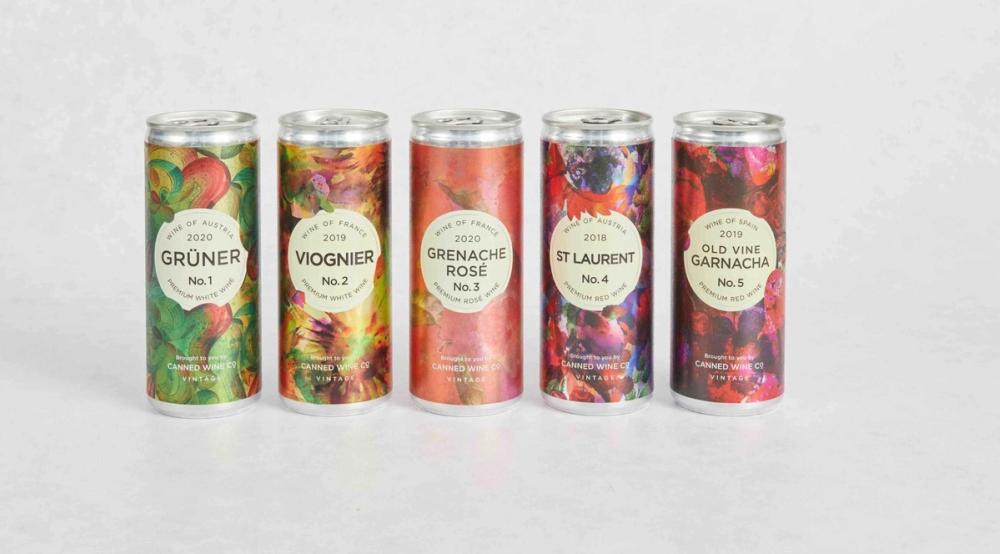
A successful wine in a can must be based on quality wine, where it is sourced and how it is packaged, says Ben Franks
Canned Wine Co. has always been a wine company first and foremost. What matters is the wine we’re canning is all varietal-led, vintage-led, best in class European wines from some of the top winemakers – like Markus Huber for Gruner Veltliner, Norrel Robertson MW for our Old Vine Garnacha, and so on. We are always refining our technical knowledge to extend shelf life and preserve quality, so that every can you open showcases these great wines at their best.
For example, with our reds we work with wineries closely to mature them in real oak barrels, monitor the wine’s micro-oxidation and technical data, taste consistently, and only can them when the wines are ready to drink. It’s like taking a photo, which holds in the sealed can, until you open it to take a sip.
What do you think you need to have to succeed as a canned wine brand?
You need to inspire trust. Cans are new for most consumers, so you need to deliver. We have most of our success in the on-trade, so when you are paying for that experience and you are paying on-trade prices, you want to receive the best wine for your money. That’s number one. The next key to success is to look at sustainability and really question what you are doing and work with all the stakeholders in your product (wineries, transport, distributors, packaging, etc) to improve on every level. The sustainable-focused wine companies that win will be thought-leaders, not green-washers.
What do you see as being the key next steps in building distribution and consumer awareness and acceptance of canned wine?
We’ve had some exceptional wins in terms of distribution. We have listings now with C&C Group, covering most of the UK, as well as Bidfood and Enotria&Coe. This means our cans our widely available. Acceptance will come with increasing competitor quality, whereby the format – whoever you buy it from – becomes a reliable alternative that can co-exist with glass. We hope to lead that movement.
What are the key wines in your range and how did you source them?
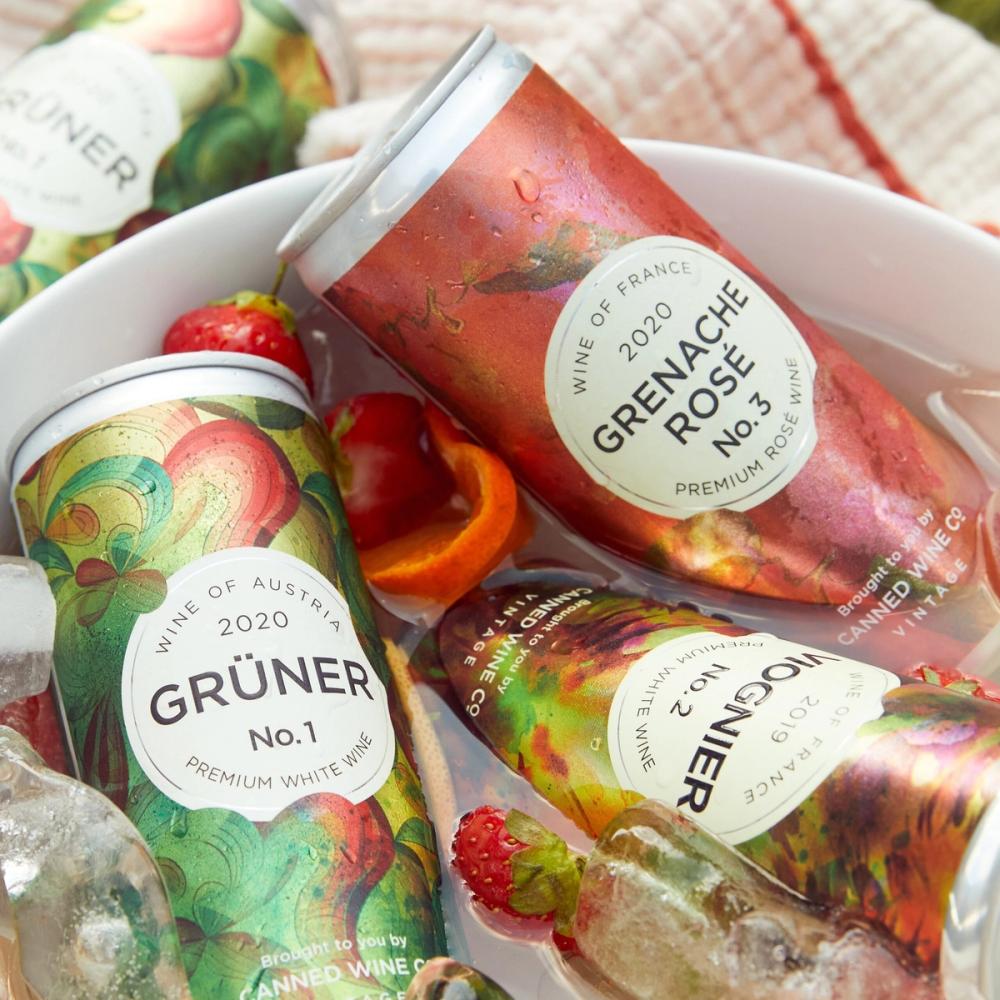
The Canned Wine Co range includes a Grunter from Austria, a Grenache from Provence and Viognier from Famille d’exes
All of our wines are key, which is what I would say as a buyer. We sourced our best-seller, the Gruner Veltliner, as an alternative to Sauvignon Blanc. Sauvignon is a great grape, with obvious commercial appeal, but it breaks down the liners in the cans too quickly and causes too much variation in canned wine quality with shelf life and reductivity. Gruner doesn’t have the same issues. More than that, Gruner stays true to our principles of curiosity and brings an interesting grape variety to market at a high quality and in a smaller serve.
It has crowd appeal with orchard fruits and white peach character, while bringing some of that hallmark pepper spice that makes it so unique.
Our limited-edition Verdejo was discovered when I did a tasting with Tim Atkin MW and fell in love with Javier Sanz’s Rueda wines and I rang them up to convince them to let us have some barrel fermented Verdejo in bulk. That was a real passion project.
Similarly I had discovered our St Laurent from Walter Glatzer in Carnuntum, Austria, after judging an Austria Wine tasting during the pandemic. Glatzer’s St Laurent stood out among 200 wines as something really special and we wanted to introduce it to people in the UK. Despite St Laurent being relatively unknown here, it’s done very well commercially and is usually the favourite.
The hardest to source was the Grenache Rosé, as we tried many different wines. We eventually discovered Thierry Boudinaud’s excellent example that had the bone dry, crisp character of Provence but softer orange citrus and complex spice notes that made it a very interesting take. Our line-up is made up with a brand-new Viognier from Famille d’Exea and the customer-favourite Old Vine Garnacha from Norrel Robertson MW.
Where do you can your wine?
We can in northern Italy as the canning partner we have has an on-site lab and winemaker. This means they can ensure the technical accuracy of the process and preserve the quality. Our aim is to can the wines in the market they are sold, so continuing to work with our site in Italy for the EU, and then to return part of our production to the UK for our customers here. The important thing is to choose customers with technical expertise in wine and sustainable credentials.
You have just bought rival canned wine brand, The Copper Crew – why did you make this move?
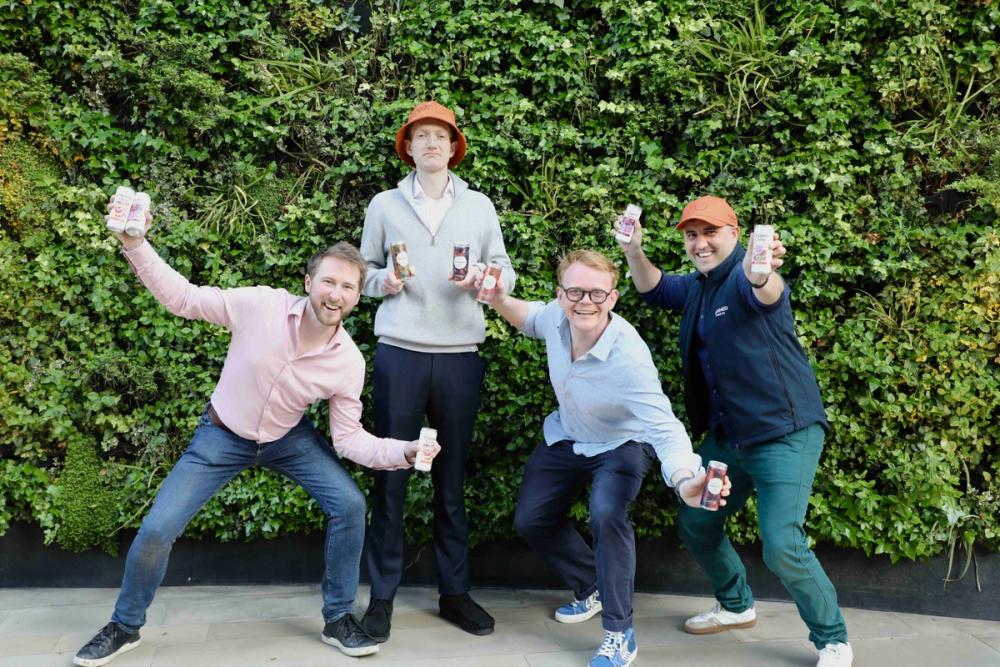
All together: The Canned Wine Co and The Copper Crew
We have always loved the brand and have worked closely with Oli (Purnell) and Theo (Gough), knowledge sharing, working at events, and co-founding WTAF (Wine Traders for Alternative Formats) with other alt-packaging brands. This gave us a great insight to their business and when the opportunity to buy the brand came up we felt it was a great fit for our strategy to establish Canned Wine Co. as a specialist of wine-in-cans delivering quality across a range of styles and price points. The Copper Crew is an initial step towards diversifying our portfolio of brands, introducing us to new markets and having some fun along the way.
You say it can open you up to a new demographic – what is that and why did you not have that before?
The Copper Crew gives us the opportunity to target different segments in the wine trade with its fun branding. The wines will be vintage and varietal led, like our core range, but reach a new set of wine consumers through bar operators at events like festivals and through multiple retail. We’re excited to expand our wine range under our slogan ‘Brought to you by Canned Wine Co.’ that we hope will inspire customers as a mark of trust.
Will you keep the Copper Crew brand going long term or look to build its wines and distribution into your own business?
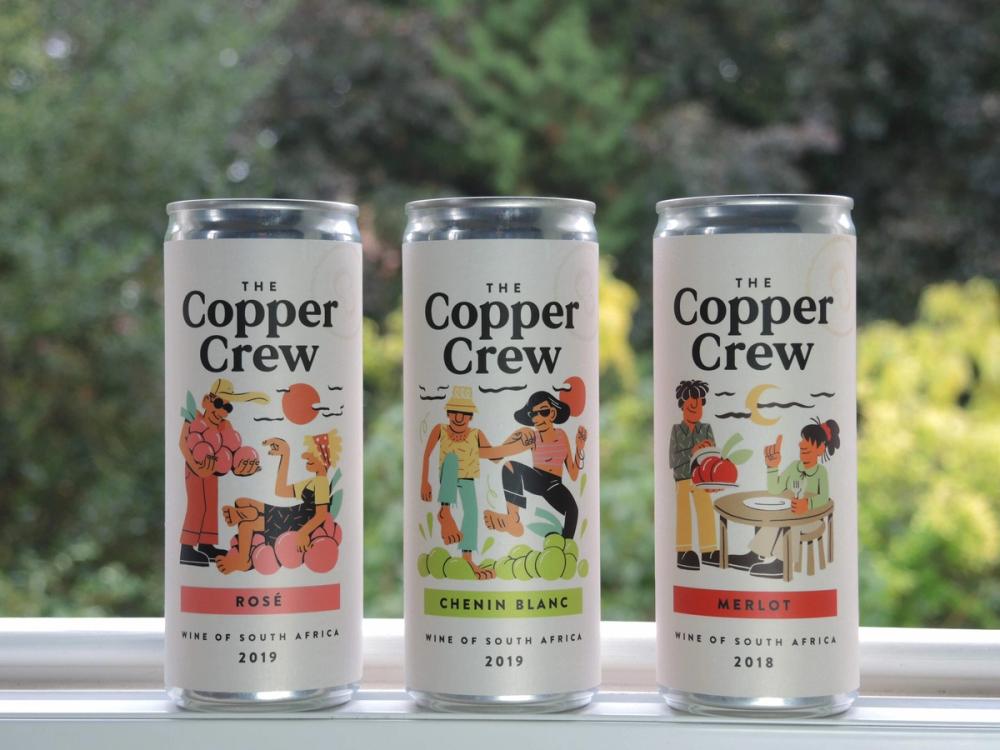
The initial Copper Crew range of brands – all sourced from South Africa
Yes, The Copper Crew brand is an important asset for us and it has its own loyal customers who we will continue to work with. We have an exciting move to European wines to ensure we sustainably source our wines closer to home, and hope to introduce you to the new range from The Copper Crew soon.
Do you see room for more acquisitions in the future?
Yes, we want the ‘Brought to you by Canned Wine Co.’ to be a stamp of quality and have a range of wines that consumers and buyers all over the world can trust. The Copper Crew is an initial strategic move in this direction, and acquisition is one of many different approaches towards this goal. Ultimately it will depend on whether there is an acquisition that is the right fit in terms of sustainability, brand and distribution. The market is still at a very early stage so we expect there to be more opportunities to expand in the future.
Does the canned market need to become less cluttered and do better if it was centred around a few big brands?
No, just like bottled wine it is about having the choice and availability. What all these brands need to do, whatever their size, is focus on technical quality. Those who rush to market for short term wins will get bitten and will not improve the landscape of the format’s market.
What growth plans do you have for the business in terms of new products and where you are sourcing wine from?
Our next projects are hush-hush but we will be having a wider range of wines available for different markets, such as multiple off-trade and festivals.
What are the key sales channels for you?
Our main customers are in the on-trade and we have fantastic venue partners, particularly in the sports and arts. We are seeing increasing appeal in traditional on-trade settings such as restaurants, cafes and bars. Our range has done very well to meet increased demand for small formats, especially in venues that are working to raise the quality of their food and drink offering.
What have been your biggest achievements so far that you are proud of?
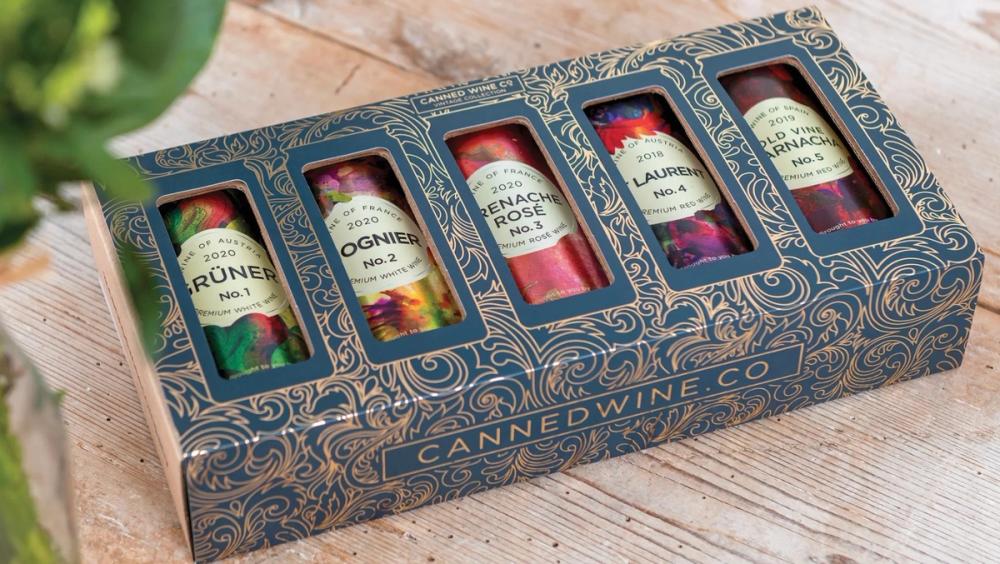
Canned Wine Co works hard on its packaging and gift sets
For me, as the buyer, it has been staying true to the original concept and the continued sourcing strategy that makes this business so exciting and unique. We’re passionate about introducing genuinely exciting wines and working really hard to ensure they are top quality. When the wineries were sceptical at the beginning, especially if they’d not done bulk before, we have managed to make the case based on the quality of our other products. That belief in our business, which has led to two of those winemakers becoming investors and shareholders, has been inspiring. It shows we’re doing quality the right way.
What have been the biggest challenges and how have you overcome them?
There was initially a huge challenge around the awareness of canned wines, particularly as we launched into Covid, when customers were reluctant to take risks and list new products. This has changed quickly over the last two years as cans have become more widely available and the quality has improved across the board. Most of our challenges are now around scaling a small business, access to funding, recruitment, and routes to market.
Where do you think the canned wine sector will be in five years’ time – where would you like it to be?
We would like there to be genuine choice in the wine market and for cans to be treated the same way as glass bottles with a plethora of options for consumers to taste and explore the wines of the world. This will contribute to a more sustainable and more exciting world of wine.
- You can find out more about the Canned Wine Co at its website here.
